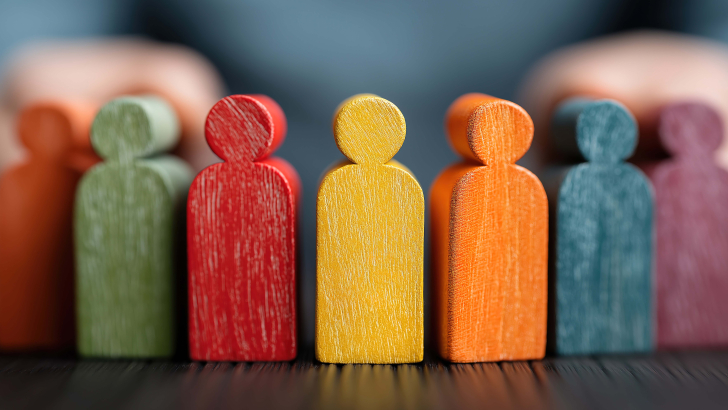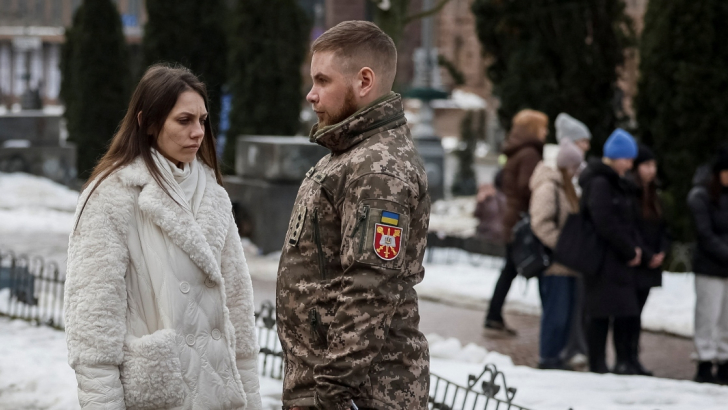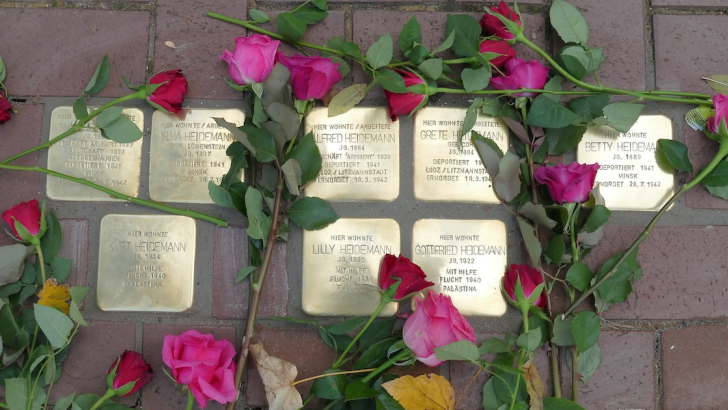Equity, dialogue, and justice are essential for the protection of human rights. An interview with Guillaumé Ngefa
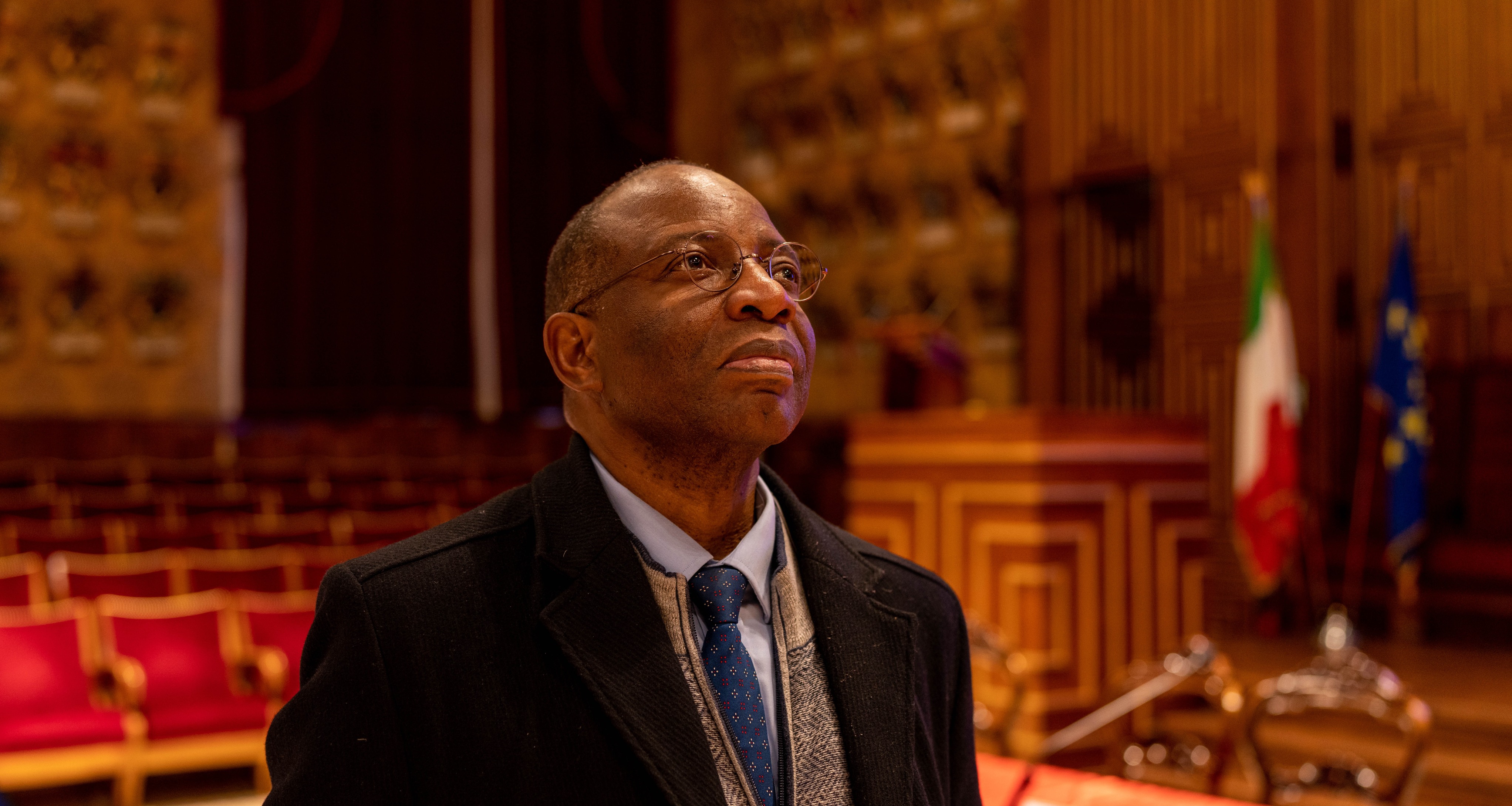
Guillaumé Ngefa. Photo: University of Padova Human Rights Centre "Antonio Papisca"
The safeguarding of human rights is a fundamental requirement for lasting peace and the management of political and social crises. This is emphasized by Guillaumé Ngefa, Chief of the Universal Periodic Review Branch of the United Nations Office of the High Commissioner for Human Rights (OHCHR) who was a special guest at the University Human Rights Centre “Antonio Papisca” during the Padova Model UPR. The event, held from November 20 to 24, engaged students from various Italian and foreign universities.
Now in its sixth edition, the Padova Model UPR stands as the largest academic simulation of the Universal Periodic Review (UPR), a procedure by which the United Nations evaluates the respect for human rights in each of its member countries, providing them with a set of obligations and recommendations to prevent potential violations.
After completing legal training at the University of Kinshasa (Democratic Republic of the Congo) and subsequently at Columbia University Law School in New York, Guillaume Ngefa-Atondoko Andali worked as a lawyer between Africa and the United States, specializing in the defence of human rights. Since 1999, he has been working as an international human rights civil servant with the United Nations in Switzerland, Senegal, Guinea Bissau, and Côte d’Ivoire. He has also held the position of Director of the Human Rights Protection Division of the United Nations Peacekeeping Mission in Mali (MINUSMA).
Ngefa delivered the opening and closing speeches of this year’s Padova Model UPR and participated in a question-and-answer session with human rights students. In an exclusive interview, he shared with Il Bo Live his commitment to defending human rights in challenging contexts and the principles on which the UPR is based.
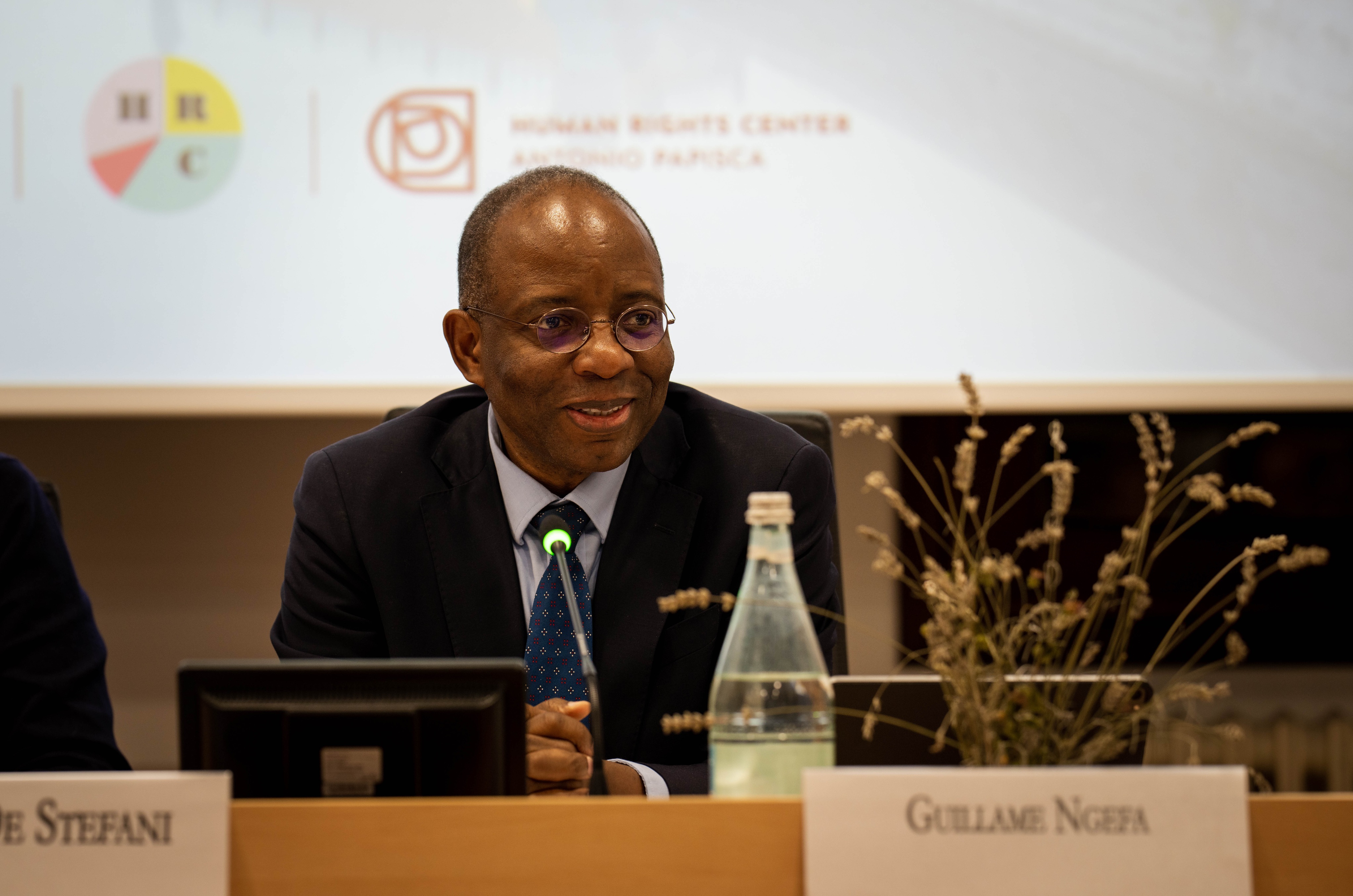
Guillaumé Ngefa. Photo: University of Padova Human Rights Centre "Antonio Papisca"
Could you tell us something about your background? What inspired you to work in human rights advocacy? Which personal or professional experiences motivated you to pursue this career?
My desire to fight for justice and human rights started very early. When I was still a child, I played and shared food with underprivileged Pygmies children. Pygmies are an ethnic group that live in the Democratic Republic of Congo and that face discrimination within the community. At the time, they were not even considered human. Children from my community were discouraged from playing or sharing food with them. Doing so was a serious offence to the entire community. My desire for justice is also influenced by my Catholic education, as from the age of 10, I entered a Catholic minor seminary, where values taught were directly based on human rights.
Later, as a university student, I established a clandestine organization that started reporting on human rights violations and abuses committed under the Mobutu dictatorship. In 1991, together with young lawyers, journalists, medical doctors, we created the Zairian Human Rights Association. Later, when we started acting in the open, we were not taken very seriously by the political system because we were perceived as just a group of idealistic, young graduates. Nowadays, the organization still exists and is known as the Association Africaine de Defense des Droits de L’Homme (ASADHO).
As lawyer-members of ASADHO, we provided pro bono legal assistance to the victims of human rights violations and abuses. This gave me the opportunity to defend these victims, not only by using national legal instruments but also – for the first time in Congo – by referring to international human rights instruments before national jurisdictions.
In the beginning, it was not easy because most judges believed that international human rights instruments were just moral instruments that could not be applicable to the national courts. So, to address this challenge, as a human rights organisation, we conducted several training sessions with judges and lawyers in order to provide them with the needed technical knowledge to use international human rights instruments in the national jurisdiction. This was a great contribution to the advancement of human rights protection at the national level.
When I joined the United Nations as a human rights officer, I was deployed to the UN peace mission in Guinea Bissau and then to those in Cote d’Ivoire and Mali. From my experience as a human rights activist and lawyer to that of a UN civil servant, I learned a lot about the protection of human rights in crisis situations. Addressing the root causes of a crisis from a human rights perspective contributes to the promotion of a culture of peace and to the prevention of future human rights violations.
I think that my past experience of working for many years in the field has been very useful for my current position as the Chief of the UPR Branch. In fact, the UPR mechanism of the Human Rights Council requires an active engagement with different member States under review, stakeholders, and other entities in terms of participation in the UPR sessions and implementation of UPR recommendations. Engagement with state and non-state actors and human rights diplomacy remains essential for the protection and promotion of human rights.
How does the UPR work? How do you review the fulfilment of the human rights commitments and obligations of the member states and how do you try to rectify things when it’s necessary?
The UPR is an intergovernmental mechanism of the UN Human Rights Council created by the General Assembly in 2006. The UPR enables the review of the human rights situation of the 193 UN member states every 4.5 years, based on the equal treatment for all of them.
The UPR exercise is based on three main documents: the first one is a national report presented by the State under review; the second one is the compilation report of United Nations information concerning the State under review; and the third document is a summary of information submitted by relevant stakeholders (such as national human rights institutions, NGOs, regional organizations, academic institutions, amongst others) that can play a role in the defence of human rights. The analysis of those documents provides an overview of the country’s compliance with its international human rights obligations, progress made and challenges still to be faced by the State.
The review of each State is conducted by the UPR Working Group – which consists of 47 members of the UN Human Rights Council – with the assistance of a group of three member states, the so-called troika.
The UPR working group meets three times a year: January, May, and November. Each of these sessions lasts two weeks, during which 14 countries are reviewed. Every review is based on an interactive dialogue of 3 hours and 30 minutes between a delegation of the State under review and other UN Member States. During this interactive dialogue, the State under review presents its national report, and the UN Member States ask questions and provide recommendations that the State under review either “accepts” or “notes”. The final UPR outcome report is prepared and adopted at the Human Rights Council during the plenary sessions held in February, June and September.
The UPR process is composed of cycles that each last four and a half years, during which every UN Member State is reviewed. From 2008 to now, we have thus concluded three cycles; the fourth one started in November 2022 and will be concluded in 2027.
Since the second cycle, the UPR has strengthened its focus on the implementation of the recommendations received by States. States implement UPR recommendations through legal reforms, legislation enactment, ratification of instruments, and other kinds of measures in order to protect and promote human rights.
Since the beginning of the UPR, we have noticed that countries take this mechanism very seriously. UN Member States appreciate the way the UPR is conducted – because they can participate in the process and not just observe it passively – and the fact that it is based on the equal treatment of every State and is a peer review process. Countries are usually keen to show to the international community their commitment to the promotion and protection of human rights and their will to respect their international obligations.
Another impressive fact about this mechanism is its effectiveness in creating a culture of trust among states, pushing them to go beyond their political or economic interests. Very recently, the review of the Russian Federation was held. The troika was composed of China, Gabon and the USA. The process went very well, as ideological and political competition of participant countries did not impact the UPR process.
Which are the biggest difficulties and the main challenges to face to protect human rights in countries with political and social instability and in countries at war? And which projects, activities, or proposals by the UPR branch do you think are the most useful in such problematic contexts?
There are many factors that could challenge the commitment of a state to fulfil its obligations. The first challenge that I have identified so far in all international mechanisms, including the UPR, is related to the fact that implementation of recommendations requires the participation of several actors, including the UN country team, national institutions, and civil society. The Parliament also has a very important role to play as they initiate legal reforms. In some countries, there are many shortcomings in the implementation of UPR recommendations due to a lack of resources, inadequate legal and institutional frameworks.
Due to this, States may request technical assistance from OHCHR for the implementation of UPR recommendations. Some of the countries that have been through war situations or social instabilities have requested technical assistance before, during and after their UPR process.
In some cases, political and social instability may prevent a country from fulfilling its obligations as well. Sometimes, the escalation of conflicts and political and civil instability can obstruct the implementation of UPR recommendations. Some States have referred to their national situation as a major reason for not being able to implement many recommendations.
Nevertheless, we have documented so far, a 100% participation of the 193 UN Member States in the UPR mechanism. This means that even countries at war have come to Geneva to undergo the process in person, trying to show their determination to address human rights violations during crisis as well, even if their commitment never totally fulfils our expectations.
In complex environments, implementation of the UPR recommendations is very important because it helps to address the root causes of political instability and conflicts. Promotion and protection of human rights is fundamental for preventing an escalation of a political crisis. That is why it is important that countries adhere to their obligation to respect international human rights law and international humanitarian law. In my own experience, I have noticed that the rule of law and the respect of human rights are essential for a durable peace and to prevent countries from entering conflicts.
Are UPR recommendations the same for every different country? In other words, how do you make sure that the obligations reflect the cultural diversity between different countries, that could have different values and different ways to interpret human rights?
The UPR mechanism is based on the principle of equality of treatment for all countries, from the biggest to the smallest. It does not matter if they have 1 million or 10 thousand citizens; they will receive equal treatment, without exception.
But even if the 193 UN Member States are examined by the same proceedings, the topics raised in the recommendations they receive are not similar. This depends on the specific context and specific human rights situation.
In other words, the UPR process is not uniform but universal: the same legal basis is always applied to different contexts through specific recommendations tailored to address each country's unique human rights situation.







